I can already see 5 ways Valve's new game Deadlock will change the MOBA genre forever
Deadlock breathes new life into MOBAs
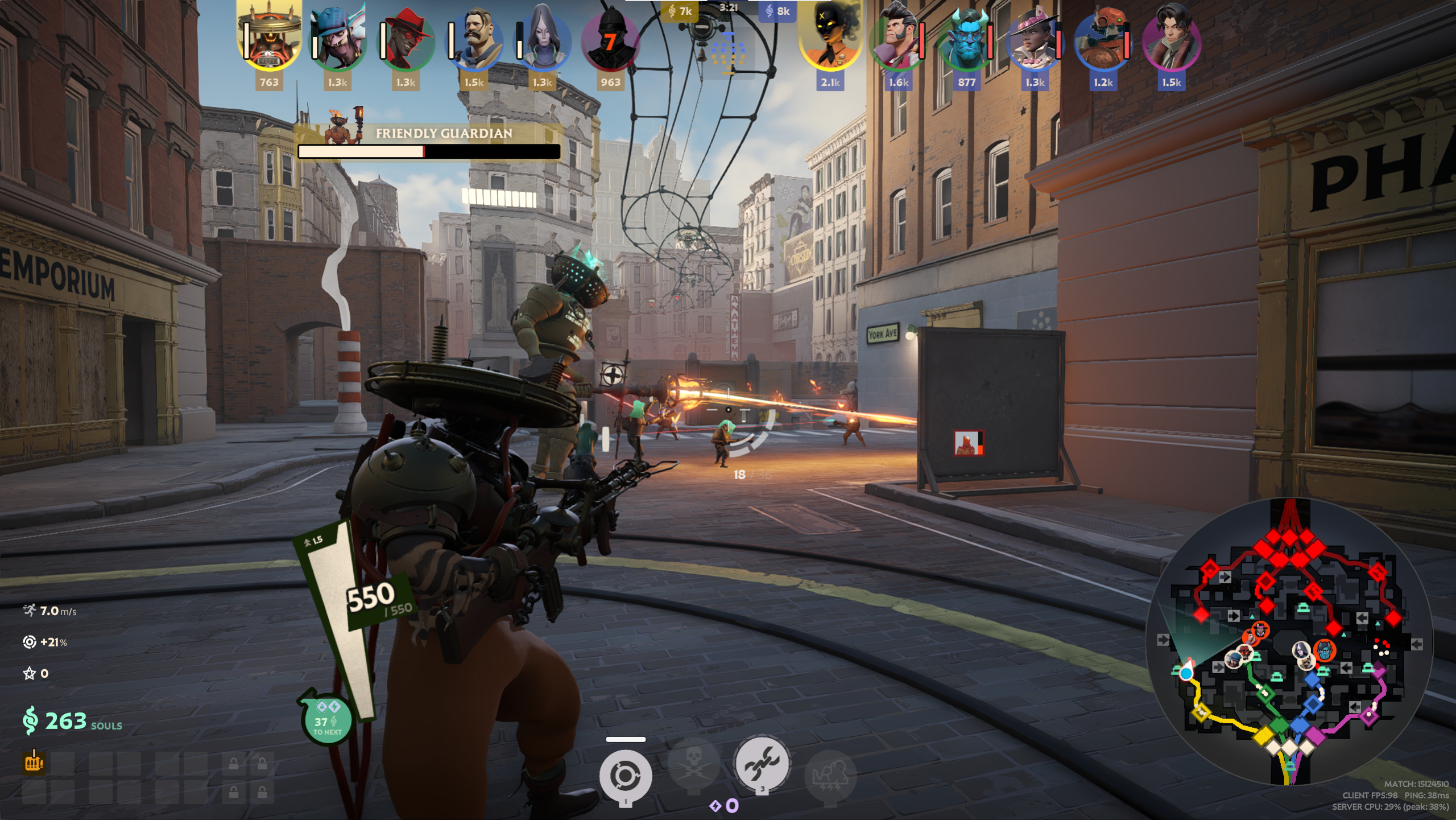
I'm no stranger to MOBAs (multiplayer online battle arena games) - I've been playing them since January 2013 when my sister dropped a Dota 2 beta key into my inbox.
But no game I've played thus far has me as excited for the future of the genre as Valve's new love letter to MOBAs, Deadlock. This new third-person, team-based competitive shooter plays with mechanics other MOBAs have been too afraid to touch, or simply haven't been able to execute in a fun, balanced way.
It doesn't take many games of Deadlock to see how this innovative title will shape and inspire future MOBAs. Here's why.
Note: Deadlock is currently in Beta. Valve releases new updates and changes regularly, with many visual and quality of life updates going live during the time it took to write this piece (as can be seen from the minimap changes between screenshots).
1. Gone are the days of core and support
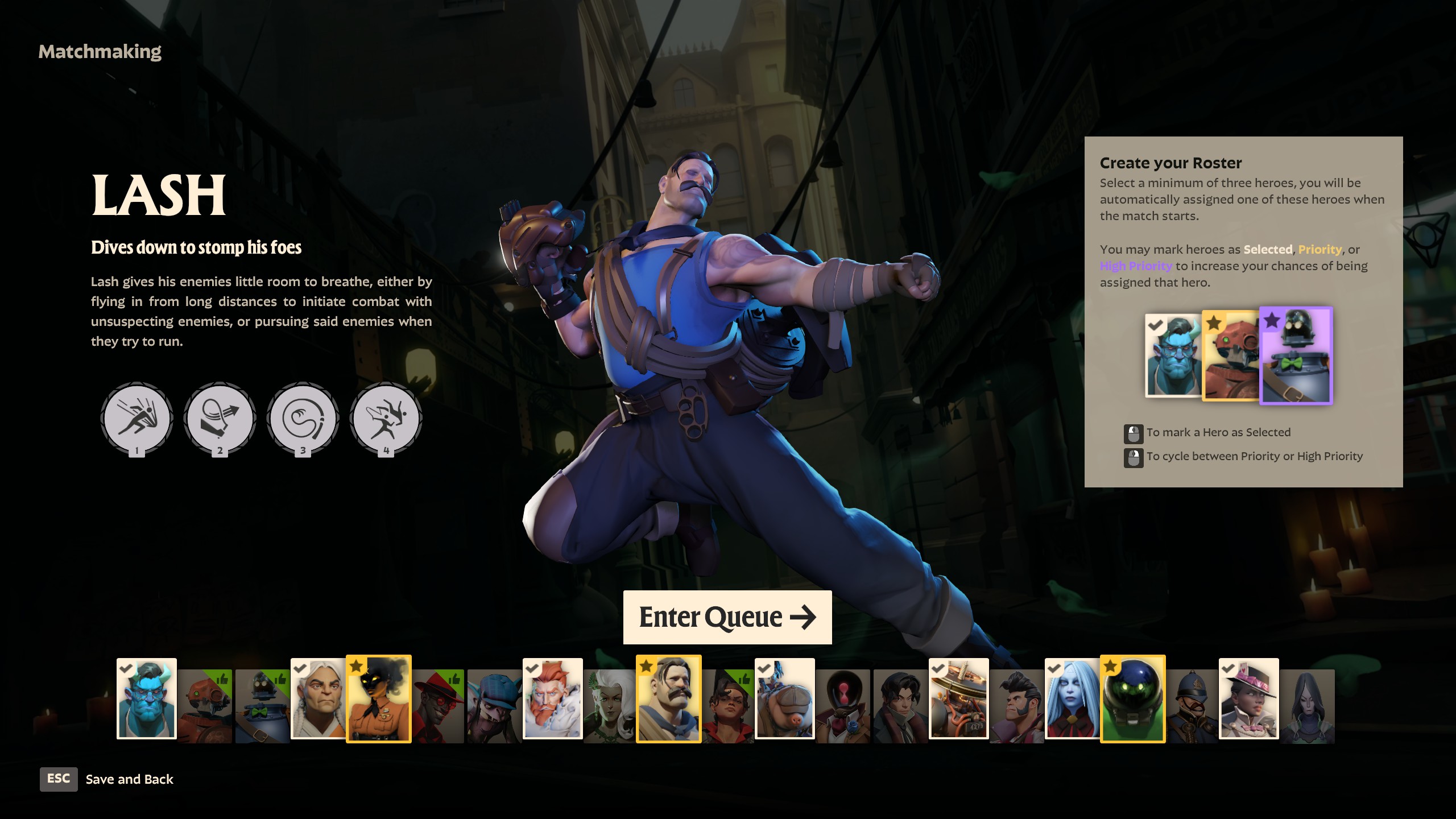
In the most popular MOBAs, like League of Legends or Dota, there's a very defined role structure. You have your "core" characters, which collect the most resources from the map to upgrade their damage, survivability, and more. "Supports," on the other hand, are meant to make do with what scraps they get; they have the most impact with the least amount of greed.
And yes, there are a few characters in Deadlock that could be considered "supports." Take the green goo man, Viscous, for example; his second ability allows you to save your teammates from certain death by encasing them in an impenetrable cube of goo.
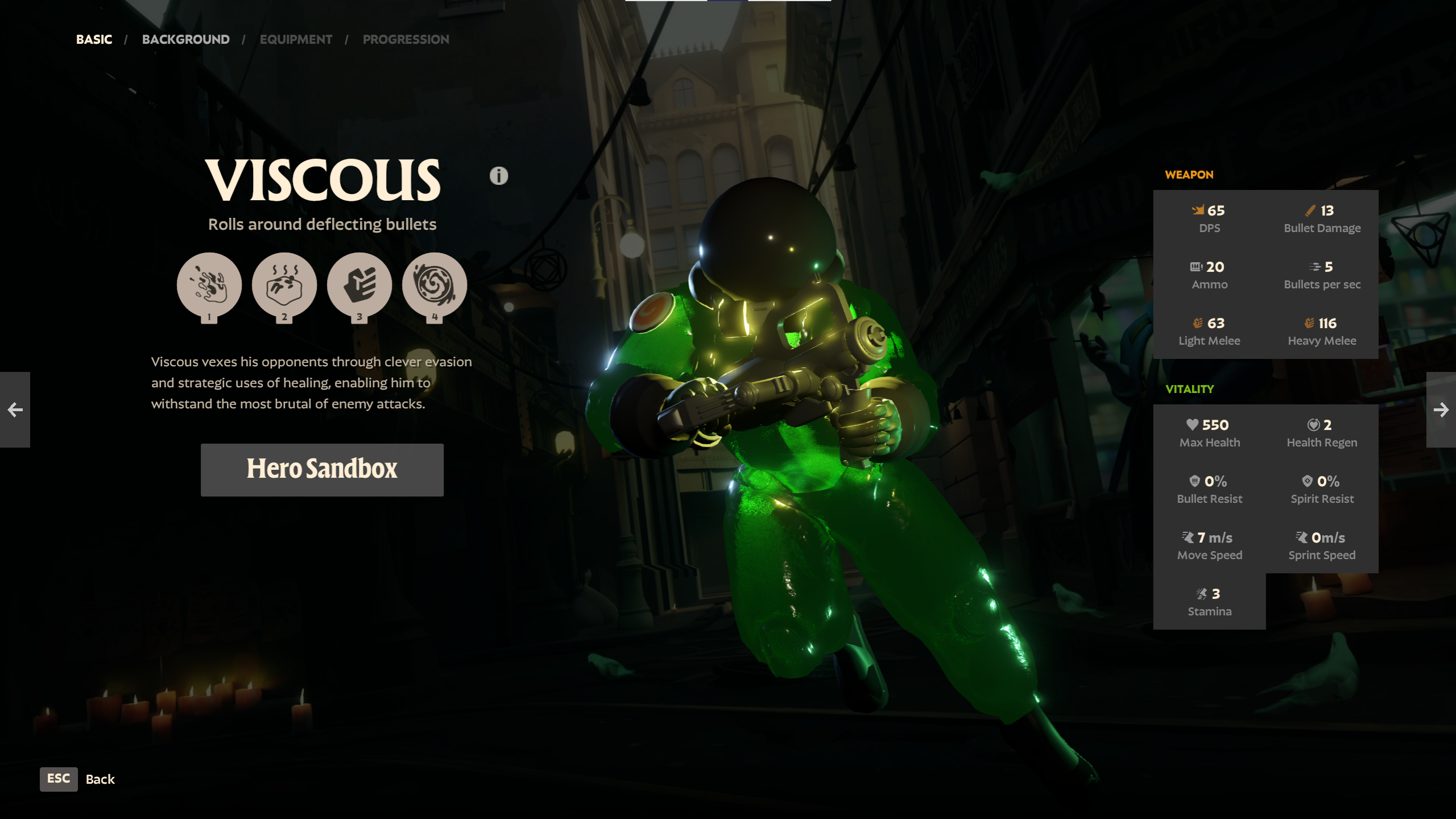
However, I believe the laning stage of Deadlock will change this at a fundamental level moving forward. It's long been a point of contention that a MOBA's "carry" player (the one who gets the most money) doesn't fit team-based games. While four or so other players are moving across the map, making plays, and creating space for their carry to farm, the carry is doing exactly that: farming. They're off in the corner, playing PvE while the rest of their team moves as a unit.
Sign up for breaking news, reviews, opinion, top tech deals, and more.
Deadlock flips this idea on its head with an interesting laning stage twist: souls (Deadlock's currency) are shared in proximity around the player who earned the final hit on the minion. This means both the "core" and "support" earn money at roughly the same rate, provided they're near each other when the souls pop up.
Everyone on your team can have enough money to purchase upgrades. There are no "supports" that scrape by, wondering where their next meal is coming from. They're eating right alongside Deadlock's cores.
I expect future multiplayer online battle arenas to follow suit, shedding the firm role hierarchy and allowing the team's net worth to be the ultimate comparison, rather than a single player's.
2. A MOBA shooter? Really?
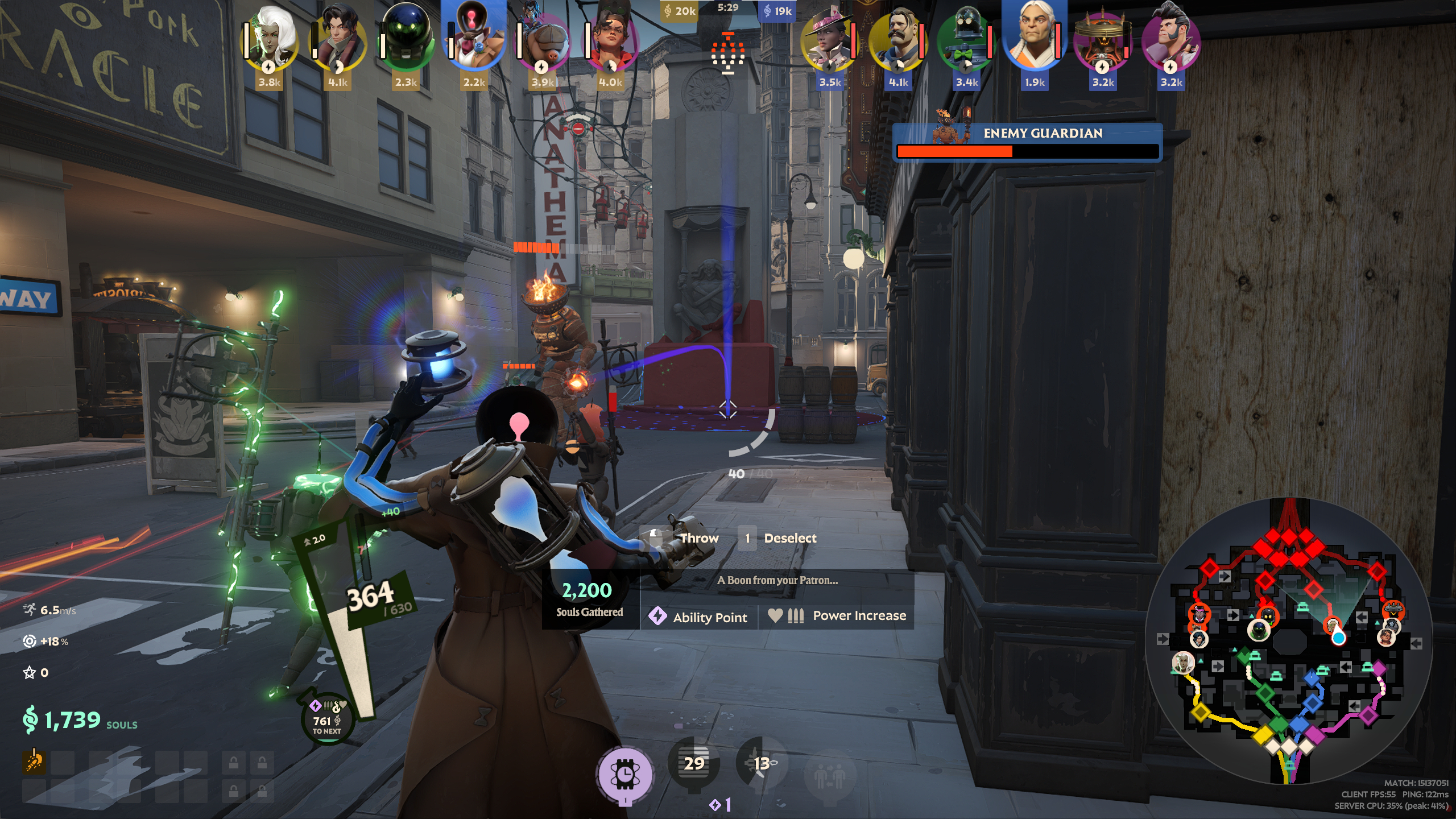
Yes, Deadlock is most definitely a game of map control. You're attempting to defend your base while attacking the enemy's. However, Valve's new title branches out into the rarely-traversed cross-section of shooters and MOBAs.
Dota 2 or League of Legends are top-down games that rely heavily on strategy, timing, and team coordination. However, this style can get boring at times, particularly during downtime when the team doesn't want to make any moves.
Deadlock, on the other hand, has that same strategy, timing, and coordination boon, but marries it with the thrill of a shooter title. Now it's not all about what items you have, what character you picked, or whether you spent your money on the best gaming mouse you could find; can you click heads better than me? If the answer is no, you might just lose out anyway.
It's Valve, with Dota 2's former lead developer, IceFrog, at the helm, branching out into this realm of experimental genre that makes me particularly excited about the future of the genre.
Deadlock is Valve telling game developers that it's not just ok to try new things, or ideas that historically haven't worked that well, it's necessary. To propel the genre to new heights and have that weekend downtime killer with your friends, MOBAs need to keep evolving, and Deadlock is a trailblazer.
3. More lanes, more players

It's fairly standard for a MOBA to have three "lanes," or paths leading to the enemy's base. However, Deadlock has four.
You may not assume one more lane is that big of a deal, but it's actually a very impactful change when it comes to team dynamics and player count.
Not only do you have an entirely new avenue to divide the enemy team's attention between, but each game has one extra player than traditional titles. That may not sound like much, but when you consider the millions of matches played every day, that one extra person adds up quickly.
Right now, there's an influx of players coming to Deadlock for the novelty. But give it a few years: how long until we see a player count decline, and it takes longer and longer to find a full match?
And when it comes to differences in the actual gameplay, I've noticed you're far more likely to be "ganked" (attacked by more characters) earlier on in Deadlock than you are in other MOBAs. I believe this is due to sharing currency between teammates and the sheer number of options when it comes to attacking. If you don't like the heroes in the green lane, go gank purple, blue, or yellow instead, then come right back to orange.
As for what this means for the future of MOBAs, I think we'll see more titles increase team size (despite higher player demand) and the ability to easily move around the map. No one wants to be stuck in a losing lane for 20 minutes while the enemy gets further and further ahead. Deadlock's increased lane count is a simple but effective solution to this problem.
4. An unwavering skill ceiling
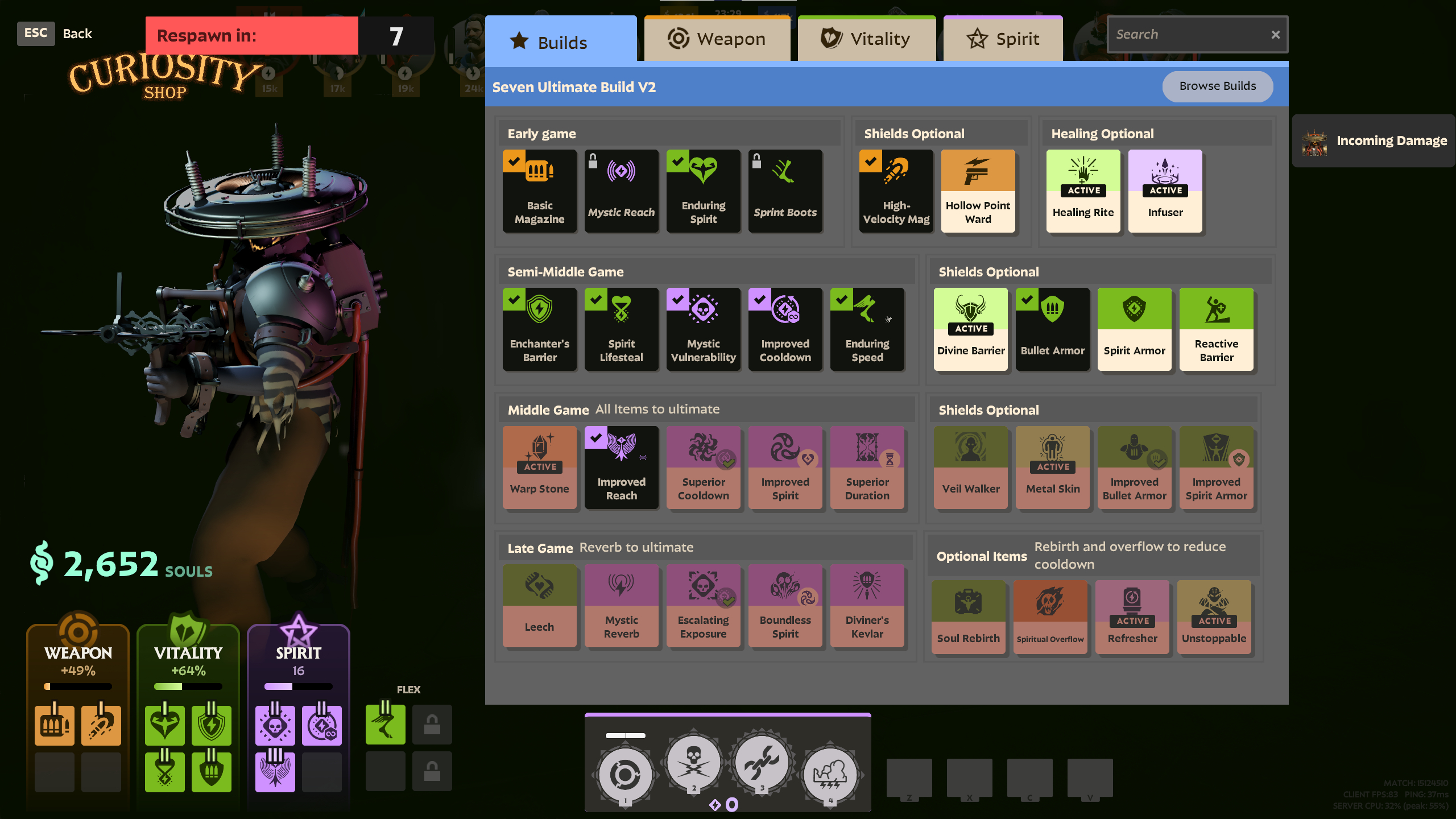
MOBAs aren't known for being beginner-friendly. They're typically very complicated and their ways are rather esoteric. And honestly, Deadlock is the same way.
It's not easy to just jump in and destroy the opponents. It's no Elden Ring DLC in terms of difficulty, but there's a busy user interface (UI), a whole host of game mechanics to learn, the mini-map to figure out, how to communicate with your team effectively...the list goes on.
But this is exactly why MOBA fans are drawn to the genre. We want to improve with each and every match we play, eeking out that extra bit of proficiency we hadn't prior.
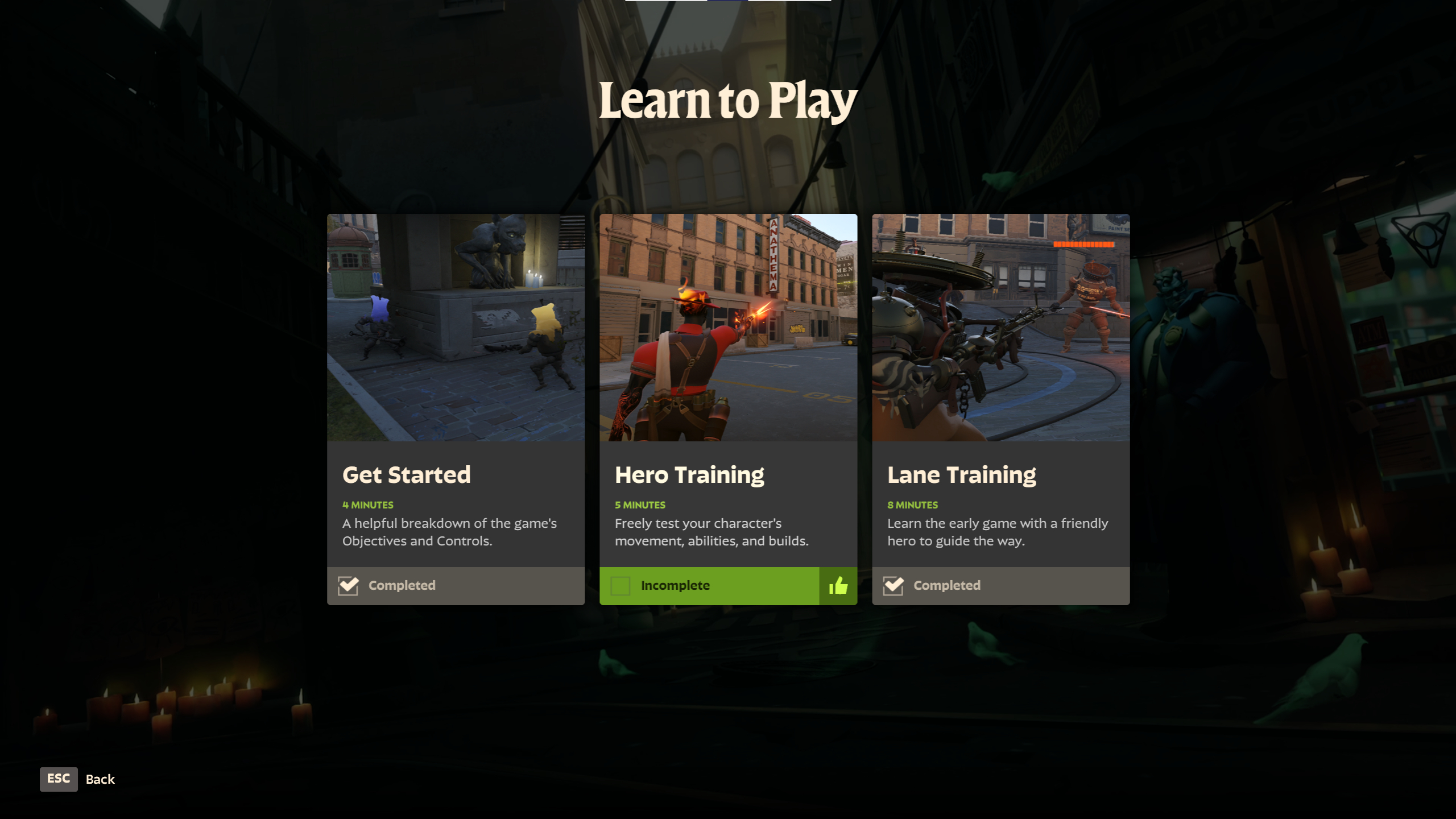
Deadlock is unapologetic in this regard. Of course, there's a tutorial, and a lot of information readily available on learning the characters and items. But it doesn't hold your hand. It gives you a kit full of tools and lets you run wild with them.
With the trend of MOBAs dumbing down mechanics and losing some of their identity to become more friendly to new players, it's refreshing to see Deadlock retain that layer of difficulty and wear it with pride.
5. From one lane to another
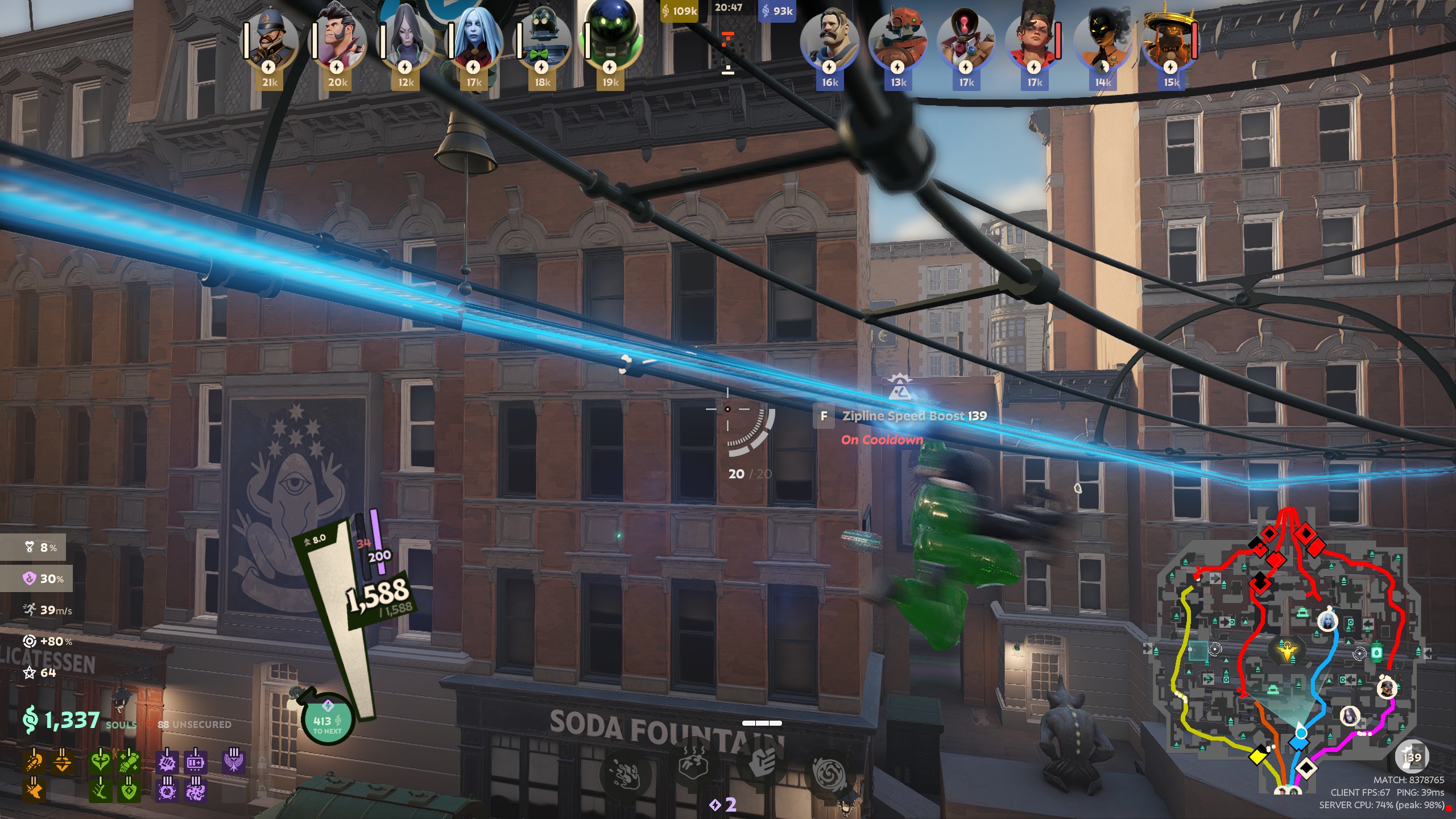
Most MOBA maps are pretty tough to navigate. You get your role, and your lane, and you stick there until the game inevitably devolves into a series of team fights, ganks, and unsavory chat messages. You'll see ways around this, like the Recall ability in League of Legends, or the Town Portal Scroll item in Dota 2.
Deadlock, on the other hand, has four railways that allow players to quickly advance down the lane up to the point their minions have traveled (meaning if a minion is 50 per cent of the way down the lane, the railway can take you to that position and no further).
This has a massive impact on the laning stage, allowing players to easily and quickly return to base to heal, purchase upgrades, and review the state of the game. They can then take another railway from base to another lane, get a kill with their team, and then use the railways once again to head back to base or closer to their own lane.
I believe we'll see future MOBAs adopt a similar sort of universal transportation system that leaves players feeling less "lost" or disconnected from their teammates.
Deadlock won't be esports' new it-game
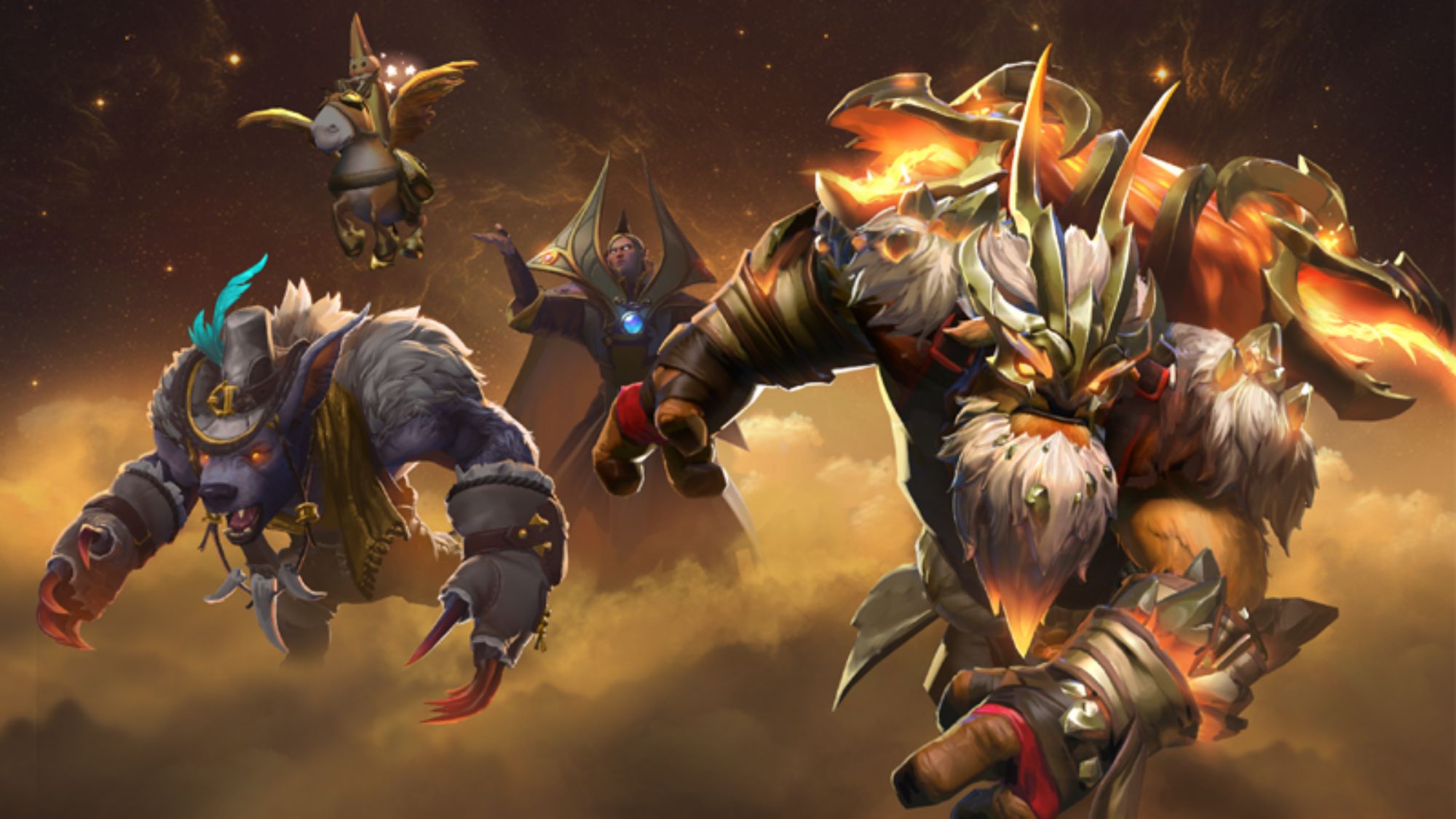
As much as I love Deadlock, its ideas, and what it stands for, I simply don't see it taking off in the esports scene.
Valve has been scaling back support for Dota 2's annual tournament, The International, for a few years now. The total prize pool fell from a whopping $40,018,195 in 2021 to just under $2,600,000 this year. Yes, you read that right; $2.6 million, not $26 million.
So if Valve is hoping for Deadlock to become its next esports superstar, I just don't think it'll happen, and here's why: a little game called Overwatch.
Deadlock and Overwatch share some clear similarities. They're both team-based, third-person shooters that have unique characters with ability kits. Deadlock expands on several systems Overwatch does not, like item builds, movement tech, and map control, but I don't think it's different enough to succeed where Overwatch couldn't when it comes to mainstream esports appeal. I do absolutely think it'll gain a cult following of diehard fans, though.
But I don't care if you have the best 4K monitor on the market - a third-person shooter with 12 main characters, a map with four lanes, a busy UI, and countless item builds just won't be easy, or even enjoyable, to follow as a viewer. Dota 2 and League of Legends benefit from their top-down perspective in this sense; as a spectator, you have a birds-eye view of the action and it's fairly easy to fit all 10 characters on the screen at once.
With third-person shooters, the opposite is true. As a viewer, it's cluttered, chaotic, and tough to focus on what truly makes one team triumphant over the other.
But I'm not an esports fanatic. I'm someone who likes playing competitive online games with their friends, and Deadlock comfortably lands itself as a must-try title in that space.
If I see you in my lane, just know, it's nothing personal.
You might also like...

Marcus Mears III is the Computing Reviews and Buying Guides Editor at TechRadar. He's been covering the latest in consumer tech for over 5 years, and he's gone hands-on with everything from the M2 MacBook Air to Valve's Steam Deck. Marcus is an advocate for Right to Repair laws and believes everyone can benefit from getting under the hood of your daily-driver tech. He'll also beat you in Texas Hold 'Em, too.